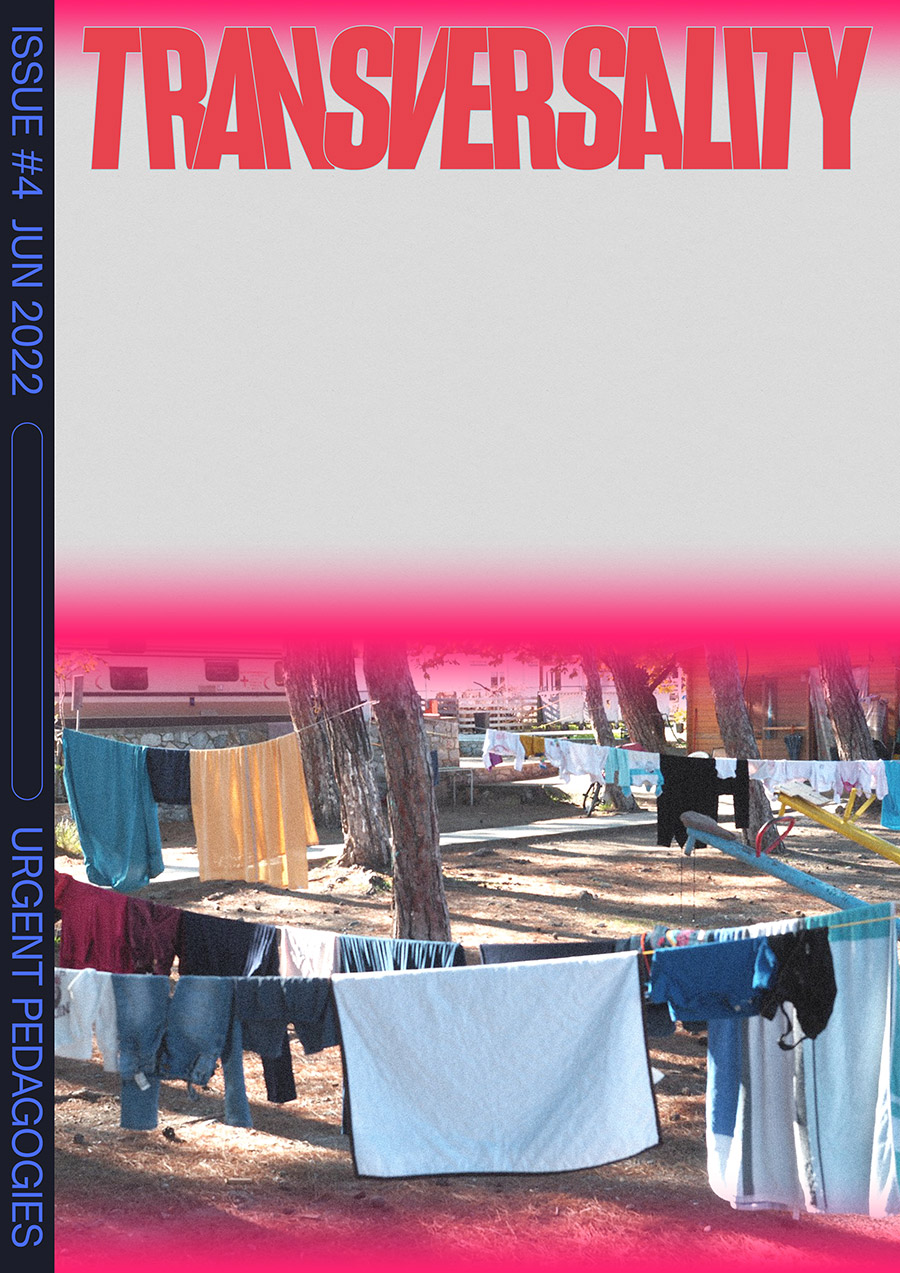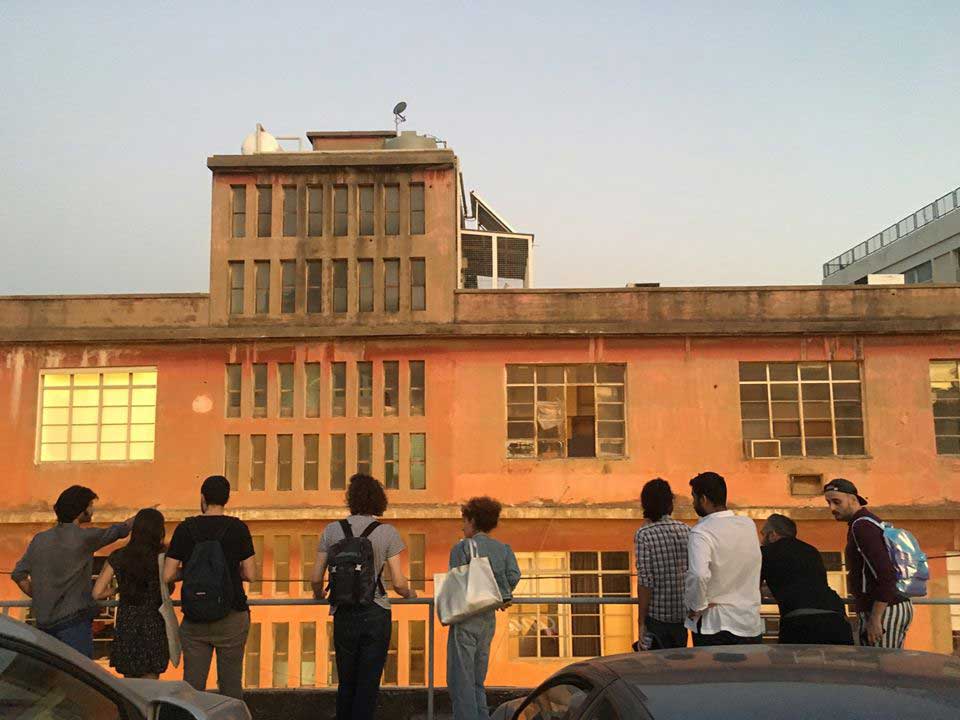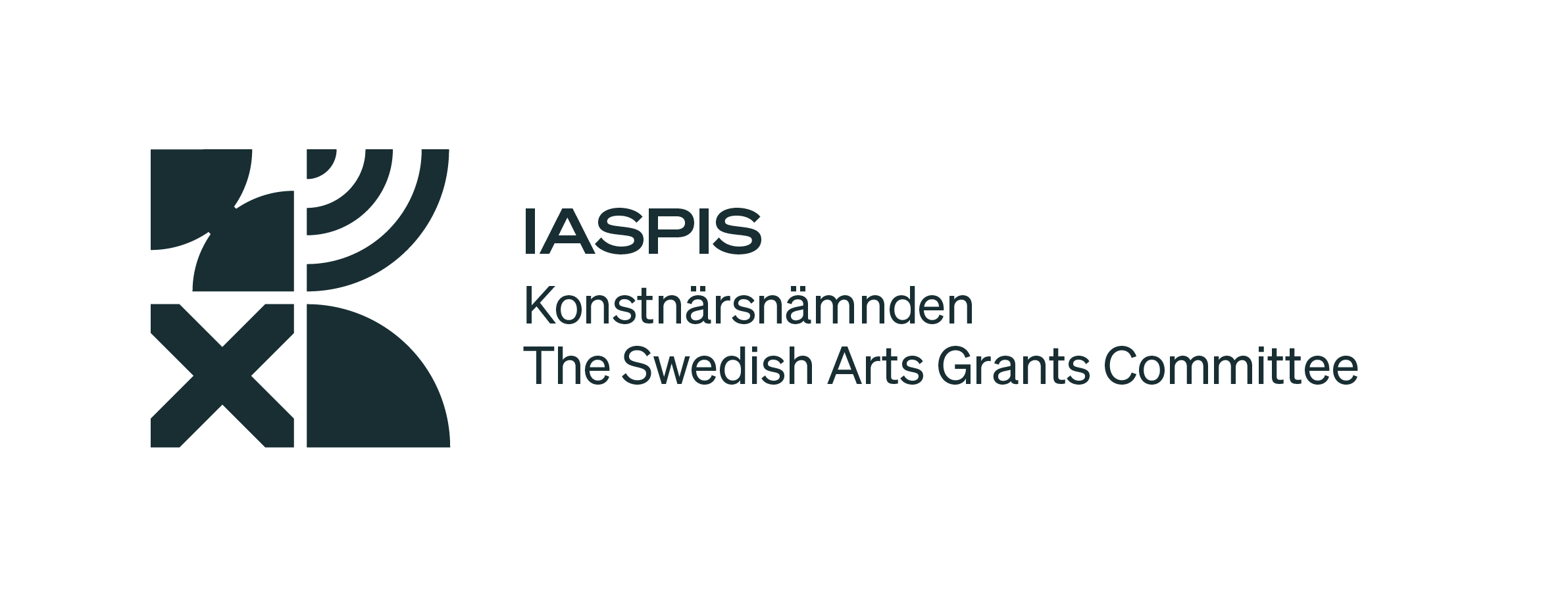Home Workspace Program
Interview with Christine Tohmé by Pelin Tan and Magnus Ericson
CATEGORY
Ashkal Alwan, The Lebanese Association for Plastic Arts is a non-profit organisation based in Beirut. Since its foundation in 1993, the association has dedicated itself to promoting contemporary artistic practice, fostering critical thinking around social realities, and engaging in community-based projects.
In 2011 Ashkal Alwan launched the Home Workspace Program (HWP). The programme is a free arts study program that invites fellows to develop their formal, technical, and theoretical skills, and provides them with resources and feedback.
HWP was initially developed to explore interdisciplinary, critical models of art education in a context in which education is mostly privatized. Moreover, it aims to include a wide range of professors, all the while addressing geopolitical particularities in art and the educational landscape.
In response to the ongoing pandemic and political and economic collapse in Lebanon, which continue to threaten cultural and educational infrastructures, HWP has gone online, and remains open to anyone wishing to attend and free of charge.
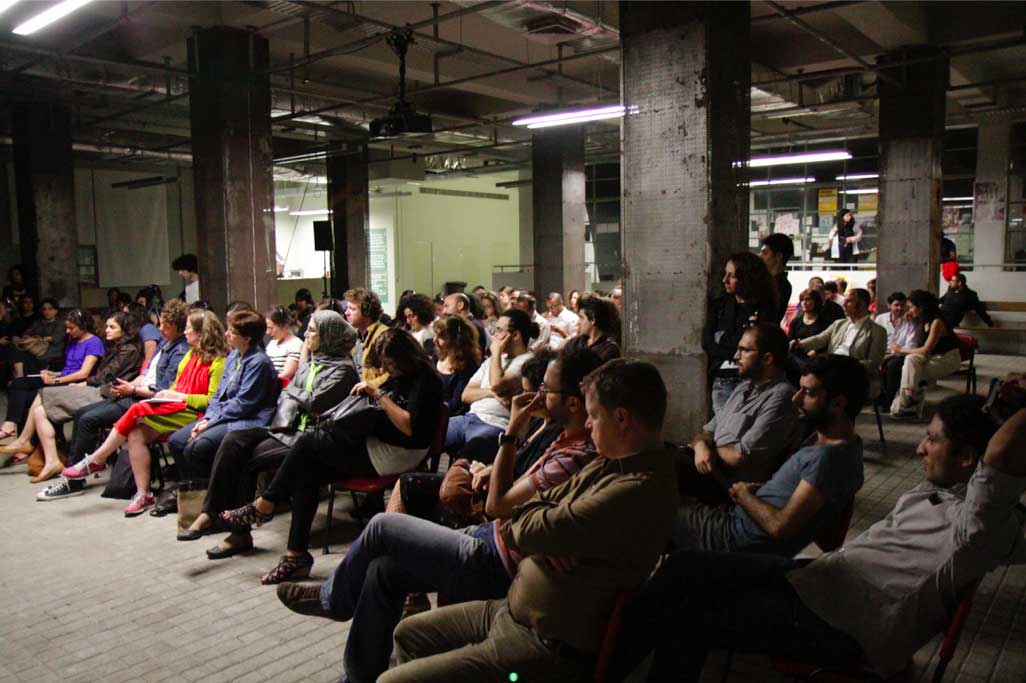
Home Works Forum 6. Photo courtesy of Ashkal Alwan
Pelin Tan: Can you tell us how and why the Home Workspace Program was initiated and organised as an academic program within Ashkal Alwan?
Christine Tohmé: Throughout the early 2000s, friends and I had been consistently talking about establishing a model of education that could complement traditional educational structures in Beirut. However, we were keen on having that model act differently to academia – in particular its stultifying frameworks and codes – and avoid having it replicate its structures. Home Workspace Program (HWP) thus started out as a programme aiming to respond to prevailing shortcomings in critical arts and humanities studies in the region, and has sought over the years to be attentive to the shifts in the educational system available for young artists. It was also a way for Ashkal Alwan to extend the Home Works Forum [1] in time and space, ensuring that the debates and issues discussed within its realm every three years, and for a limited period, could continue to be engaged with and explored. We were prompted to consider moving into a physical space that would act as a communal ecosystem for artists, scholars, activists, and cultural practitioners.
Today, Home Workspace Program is an arts study program open to artists from Lebanon, the Arab region, and the world over to develop their formal, technical and theoretical skills in a critical setting. The program provides fellows with feedback and resources to facilitate and support their art practice. It has now run ten successful editions. [2]
The people I had started to work with at first – Joana Hadjithomas, Walid Raad, Lina Majdalanie, Gregory Sholette, and Khalil Rabah – all became part of the programme’s Advisory Curriculum Committee, allowing us to gather and think together about the knowledges and pedagogical forms of exchange we want to bring forth and infuse into the programme for each edition. This committee, which is also integral in the selection of fellows, rotates every three years, and has since included Natascha Sadr Haghighian, Tony Chakar, Joe Namy, Iman Issa, and Zeynep Oz.
HWP is organised annually around workshops, seminars, lectures, group critiques and studio visits. Visiting Professors (VPs) and their invited guests organise workshops and seminars based on their practices. Alongside the work of the VPs, the curriculum includes a series of seminars to complement the fellows’ general theoretical and art historical knowledge offered by Guest Professors. Advisors follow the fellows’ work throughout the year, organising group critiques and one to one sessions. Each year a Preface to the programme is organised by an invited guest, or a Preface leader. In these first three weeks, fellows introduce their work, are introduced to the HWP programme, and are oriented to Lebanon’s urban and cultural geography through site visits and talks. Since the program’s first year in 2011, we have collaborated and exchanged with many institutions and collectives who initiated similar programmes, such as MASS Alexandria’s studio space and study programme, RAW Material Company’s residency programme in Dakar, WHW Akademija in Zagreb, and Kem in Poland.
In December 2020, and in response to the political and material urgencies in Lebanon that continue to threaten cultural and educational infrastructures, we launched the tenth edition of HWP in an open year format, available to anyone wishing to attend. The selection committee has been put aside in favour of welcoming all those interested in registering; no applications are therefore required anymore. More than 350 participants from Lebanon, the broader region, and internationally took part in five chapters and four skill-based workshops. We were thus overwhelmed by the public’s unprecedented enthusiasm vis-a-vis this edition of HWP, and are convinced that, amid precarious conditions, interdisciplinary forms of learning and exchange remain matters of great importance.
HWP 2021 was divided into five individual chapters unfolding over the course of six months from January 2021 until June 2021. Each chapter lasted three weeks and was organized by a Lead Professor who (1) designed a curriculum responding to a set of theoretical and aesthetic concerns and (2) invited up to four Visiting Professors to each lead a seminar, workshop, or collective reading session. Chapter 1, led by Adrian Lahoud and Lawrence Abu Hamdan with invited guests Walid Sadek, Dread Scott, and Susan Schuppli, expanded on the idea of a ‘scene’ in a criminal event to better understand the collective preconditions of testimony. Chapter 2, led by Rasha Salti with invited guests Mahasen Nasser Eldin, Mila Turajlic, Mohanad Yaqubi, Jihan El-Tahri, and Kader Attia, explored the question of restitution and the materiality of photographic and audio-visual archives that amplify the north-south chiasm and resurrect the unresolved spectres of colonial history. Chapter 3, led by Marwa Arsanios with invited guests Catherine Malabou, Lama El Khatib, Natascha Sadr Haghighian and Ashkan Sepahvand, engaged with and through the works of scholars and artists in order to think about new tools for action and praxis within our current political condition and its impasses. Chapter 4, led by Pelin Tan with Dima Srouji, Rojda Tuğrul, Hera Buyuktasciyan, and Zainab Bahrani, created room for and brought forward collective critical thinking by focusing on memorising lands, de/archiving artefacts, enacting non-human cycles, and engaging with poetics of exile. Chapter 5, led by Zeynep Oz and Daniel Blanga Gubbay with Arzu Sak Seyhun, Nazlı Pişkin, Otobong Nkanga, Long Litt Woon, Ibrahim Nehme, and Farid Rakun (from ruangrupa), asked: How to raise awareness about human and more-than-human networks of labour and collaboration that exist in a landscape, in a practice, and within art-related processes? In parallel to the chapters, HWP offered four skills-based workshops that were also free and open to all those who pre-register: coding with Leen Charaffedine, urban mapping with Monica Basbous, video editing with Carine Doumit and Nour Ouayda, and sound with Tarek Atoui.
Magnus Ericson: What has been the role of the programme when it comes to engaging with a local context and for creating communities?
Christine Tohmé: Home Workspace Program provided many artists and cultural practitioners with an opportunity to produce and think alongside peers from the region and beyond. HWP was and still is a vibrant, urgent energy of people meeting and affecting each other, and being affected by the city, the political situation, the institutions, to be continuously ‘present’. And if it instigates and shapes communities, I would say it is due to the structure of the programme, which isn’t result-oriented, and relies instead on forms of exchange to sustain continuous dialogue amid a localised context, i.e. Beirut, where fellows are, from the get-go, immersed in particular dynamics and asked to respond to and operate within everyday situations with a sense of collectivity in mind. In addition to forming relations among and beyond one another, fellows also end up engaging in forms of community-making with the city’s civic, cultural, and academic sectors, as well as with the actors – scholars, journalists, NGO workers, activists, lawyers, environmental policymakers – that comprise and compose them.
Creating a continuous platform for the fellows takes an enormous amount of work and perseverance. It becomes a year-round space of doing, thinking, happening, and a space for people to take time off from the stress of production and art market pressures. HWP has acted as a passport for young local artists, some of whom had no prior formal training in the arts, to continue their studies and/or produce abroad. HWP continues to work like a traditional course in that it has a solid structure with seminars and group critiques. However, its fluidity lies in its refusal to reproduce calcified notions of a recurring “faculty” or curriculum and its openness to the visions of visiting artists and professors each year. HWP provides agency to those who have joined it to create their own projects and expand beyond the local network. They continuously return and engage in different ways either by teaching, being part of a group critique or by joining as guest artists. They always remain part of HWP’s growing community.
Throughout that process, and to this day, Ashkal Alwan has been invested in redefining the function and scope of its public mission, exploring how publicness in itself can be deployed and experienced, and towards which parameters the public sphere can be expanded.
Pelin Tan: Can you outline the current situation in Lebanon and Beirut for us to further understand the changing role of Ashkal Alwan, the program and the space itself?
Christine Tohmé: Lebanon started grappling with three different crises unfolding simultaneously: (1) an unprecedented economic and financial crisis characterized by the ongoing devaluation of the local currency and an impossibility of the state to pay its gargantuan public debt; (2) a crisis of political legitimation initially wrought forth by the October 17 uprisings and the protesters’ call for dismantling over thirty years of systemic corruption, sectarian power-sharing, and neoliberal austerity policies; and, as of March 2020, (3) a sanitary crisis in conjuncture with the emergence of the ongoing Covid-19 pandemic on a global scale.
On October 17, 2019, protests broke out across Beirut – later leading to a national uprising – and coincided with the opening night of Home Works 8; as a result, the entirety of its programmes and exhibitions were either postponed or cancelled. The circumstances that led to the postponement of Home Works 8 were rather particular, and raised questions pertaining to our work and the context in which we operate. The first couple of days of the programme (October 17 and 18) have witnessed unexpected popular uprisings that have swept the entire country, and were to continue for weeks to follow. Roads leading to the airport were blocked and most highways were closed off; and while both the army and security forces intervened on the streets, protests seemed to be increasing in intensity by the hour. For the first weeks of the uprising, we have actively participated in mass protests and general strikes, closely monitored the situation as it was unfolding, and consulted with friends and colleagues from the legal, academic, journalistic, and artistic-cultural sectors to decide on the best way forward. Our conclusion was to indefinitely postpone our discursive (talks, panels, and readings) and performance (music, dance, theatre, and lecture-performances) programmes and events. Our artistic, intellectual, and organisational energy were meant to be redirected towards the achievement of our hopes and aspirations, the possibility of which was and still is being granted to us by a momentum that should have been seized at any cost.
The logistics of cancelling the forum after two years of organisational, promotional, and artistic work was no small feat. Additionally, and for the first time since its launching, visas for our international and regional fellows, participating in HWP, had been rejected by the Ministry of Interior, signalling a new era of cultural isolation and severed relations between the state and the non-governmental sector. Though the fellows’ residencies were eventually secured, the incident cast a cloud of uncertainty on the educational programme’s continuity and sustainability. Due both to the emergence of Covid-19 pandemic as well as the culmination of Lebanon’s economic and financial crises, the institution’s challenges became manifold. The banking sector’s capital controls on international wire transfers and foreign currency transactions resulted in a sector-wide incapacity to meet financial obligations, including the payment of salaries, contractual fees, rents and so on. With the majority of our resources either locked or made to disappear, we were and continue to be incapacitated to continue our operations or plan for the future. We have also been pushed to discontinue and/or manage alternative routes for our ongoing projects with artists outside of Lebanon, as well as our financial support to local community members who depend on aid to carry on with production-related tasks or studies abroad. Furthermore, on March 30, 2020, the ninth edition of Home Workspace Program was discontinued due to our inability to secure the health and safety of our fellows during their stay in Beirut. Fortunately, most of the seminars, workshops, and one-on-one sessions we’d planned for the 2019–20 edition were moved online.
On August 4, 2020, a large amount of ammonium nitrate stored at the port of the city of Beirut, exploded, causing at least 220 deaths, 6,500 injuries, US$10–15 billion in property damage, and leaving an estimated 300,000 people homeless. As a result, Ashkal Alwan directed its efforts to repurposing its facilities and accommodating artists, cultural workers and activists in Beirut who lost their spaces and income due to the unfolding simultaneous financial, political and sanitary crises. We were convinced that, by focusing our efforts towards making our space available and open to the public, we would be able to aid the artists operating within our ecosystem reclaim their material and intellectual agency, push their practices and retrieve part of their losses. It goes without saying that these crises haven’t only affected the cultural sector, but are actively threatening its very existence.
As we continue to face the most acute form of precarity since Ashkal Alwan’s inception, we are being pushed to experiment with new methods and forms, and challenge conventional ways of going about institution-building. This has, again, led to a succession of trials and errors whereby the porosity of our space served as a blueprint to think through potential configurations that would best fit our communities. Over the last couple of years, Ashkal Alwan has focused on repurposing its 2,000 sqm venue. In January 2020, the Community Studios Project was initiated as more and more practitioners, collectives and nomadic institutions were losing their workspaces. In parallel, Ashkal Alwan was rethinking HWP’s structure. The programme eventually needed to grow and evolve together with existing platforms, not against them, as current circumstances had rendered artistic production increasingly inaccessible.
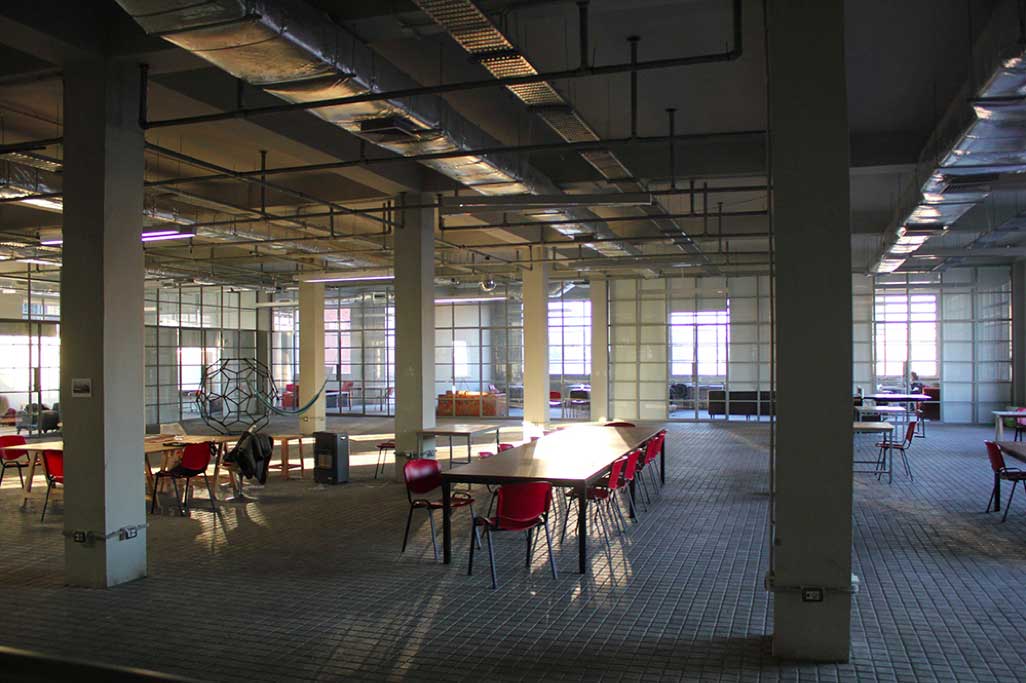
Ashkal Alwan’s common workspace and studios. Photo courtesy of Ashkal Alwan
Magnus Ericson: What is your view on Ashkal Alwan as a possible space for resilience?
Christine Tohmé: The question of imagining, building, and sustaining an art institution that not only responds to shifting material conditions but also configures itself as a result has been a concern of Ashkal Alwan since its inception. As an institution, Ashkal Alwan was born in and around ‘crisis’ in the mid-1990s, at a time when the postwar reconstruction project in Beirut was materialising. Ashkal Alwan was then responding to the expropriation of public spaces within the city of Beirut and, also, the imposition of a state-sponsored form of ‘collective amnesia’ in relation to the civil wars and the injustices that had unfolded throughout its occurrence. It is important that we think past the term ‘resilience’ and its supposition that one has to persevere despite and not against the conditions that have been imposed on them. We have long sustained and fed the discourse of ‘resilience’ in Lebanon, as artistic-cultural institutions who have always been imbricated within larger civil society networks, and as inhabitants of a country where the state of exception has become the norm, and the absence of state structures has exposed us to mass precarity. Rather than conceiving strategies of resilience, we should seek to engage in oppositional politics.
Today, Ashkal Alwan faces different challenges that are not only related to its local context but expand towards operating as a regional and international platform. We’re undergoing a specific crisis in Lebanon that’s producing its own set of morbid symptoms: currently, the Lebanese government, following decades of neglecting and marginalising local artistic-cultural institutions, is consciously attempting to suffocate the sector by imposing draconian tax measures and doubling down on forms of policing and censorship, which includes having General Security reject visa applications from incoming artists and cultural practitioners wishing to join HWP. This continues to affect the work and programmes we do at Ashkal Alwan. A new era of cultural isolation is being ushered in, and it is now up to us to determine the tools that enable us to engage with the battle to come. We have long been committed to alternative modes of cultivating friendships and networks of solidarity. But what do you do when the artists, cultural practitioners, thinkers, and activists that compose your community are either leaving or being driven out of Beirut and stripped of their ability to dream? My sense is that fragmentation is among the most significant challenges we will be facing in the coming years.
Pelin Tan: Can you finally tell us how you have developed an archive in relation to Askal Alwan and the different programmes?
Christine Tohmé: In 2015, and in line with our apprehension of publicness and accessibility, our efforts to consolidate Ashkal Alwan’s archive began. Over the span of three decades, we have been accumulating a large and diverse audio-visual archive containing magnetic and digital tapes, DVDs, and digital files. This material largely comprises films and performances, recordings of previous editions of Home Works Forum, Home Workspace Program lectures, and numerous seminars and talks. Having been dispersed across several media, all materials were collected on an open source media archive platform called pan.do/ra set up on-premise in December 2015. This platform came to host its entire audio-visual archive, but was only meant to be accessible from the Ashkal Alwan space in Beirut. Later in the process, we decided to migrate the centralised archival unit to exist on the Cloud. So, Ashkal Alwan established its archive as an open-access online platform, making available terabytes of digital recordings to the wider public. The aaarchive was launched in March 2020, coinciding with the first imposed international lockdown as a result of the ongoing Covid-19 pandemic.
For me, this archive is a living testament and a material witness of history—not as a succession of past events, but a continuous process of meaning-making. I consult my archive on an almost daily basis to situate myself, my curatorial practice, and Ashkal Alwan’s institutional activities within broader political developments. It helps us understand where to locate our current tasks and interests. It also, in a way, allows myself and my colleagues at Ashkal Alwan to monitor the ways in which our work might have helped shape a civic discourse in Beirut, or whether we’ve succeeded in forming networks of alliances with regional institutions or committed individuals working in the artistic-cultural field. This accumulation of past activities – what was uttered and produced within their occurrence, what was deemed as a glitch and what succeeded in starting a conversation – imposes a path forward for future institutional activities.
In fact, and in response to a growing refiguration of its public mission amidst an age of social distancing, we ended up moving most of our programmes—including HWP – online. Perpetual Postponement [3], an online publishing platform, comes as the logical continuation of our commitment to participating in the conception of openly-accessible digital and online platforms. It also responds to a lack of platforms in the region that promote politically engaged and experimental writing in Arabic as well as interdisciplinary arts initiatives. Within its first year, the platform hosted short and long format textual essays and interviews, sound pieces, as well as short films, video montages, 3D renderings, and drawings, by artists, scholars, writers, and activists based in the Arab region and invested in different disciplines, geographies, and contexts.
Furthermore, as of October 2021, Ashkal Alwan is launching its Archive Residency program, offering artists, researchers, and scholars the opportunity to engage with and research its audiovisual and archive of artistic and cultural practices with a view to developing their own project. The programme will take place over a period of three months at the Ashkal Alwan library. The library houses a growing collection of books, catalogs, periodicals, and ephemera, and includes material on art history, theory, and education, architecture, photography, film, media, theatre, performance art, comics, philosophy, critical and political theory, literature, poetry, and cultural policy. The final, and public, outcome of the residency can take different formats and should be determined by the selected residents and Ashkal Alwan. Residents will be granted a shared studio space and a monthly honorarium.
This conversation took place online between Beirut, Mardin and Stockholm, November 5, 2020, then transcribed and edited.
1.
Initiated in 2002 and taking place every three years in different venues across Beirut, Home Works: A Forum on Cultural Practices brings together a full iteration of performances, exhibitions, screenings, and discursive programmes around a common set of urgent questions. The work of the forum’s participants endeavors to create methods of critical inquiry and aesthetic form capable of conveying those questions meaningfully—and proposing possible solutions.
2.
This is how the program was structured throughout the years:
Year 1: Emily Jacir (Resident Professor) + Amal Issa (Programme Coordinator)
Year 2: Matthias Lilienthal (Resident Professor) + Rewa Baassiri (Coordinator X-Aptartments) and Amal Issa (Programme Coordinator)
Year 3: Amal Issa (Director) + Anton Vidokle and Jalal Toufic (Resident Professors) + Rewa Baassiri (Programme Coordinator)
Year 4: Amal Issa (Director) + Curriculum Committee: Kader Attia, Joana Hadjithomas & Khalil Joreige, Walid Raad, Khalil Rabah, Lina Majdalanie, Gregory Sholette, and What, How, & for Whom (WHW) (Resident Professors) + Moritz Fingerhut (Programme Coordinator)
Year 5: Ghalya Saadawi (Resident Professor) + Haig Aivazian (Resident Advisor) + Moritz Fingerhut (Programme Coordinator)
Year 6: Ghalya Saadawi (Resident Professor) + Joe Namy (Resident Advisor) + Lara Saab (Programme Coordinator)
Year 7: Roy Samaha, Joe Namy, and Haig Aivazian (Resident Advisors) + Lara Saab (Programme Coordinator)
Year 8: Joe Namy (Resident Advisor) + Lara Saab (Programme Coordinator)
Year 9: Joe Namy, Haig Aivazian, and Daniele Genadry (Resident Advisors) + Lara Saab (Programme Coordinator)
Year 10: Open Year (Conceived and managed by Ashkal Alwan team: Thourayya Kreidieh, Edwin Nasr)
3.
Perpetual Postponement is an online publishing platform launched on June 20, 2020; www.ashkalalwan.org/program.php?category=5
is a Lebanese curator and the founding director of Ashkal Alwan, the Lebanese Association for Plastic Arts. Since its founding in 1993, Ashkal Alwan has been committed to contemporary artistic practice, research, and education. In 2016–18, Christine Tohmé curated Sharjah Biennial 13, Tamawuj. Tohmé is also on the boards of Marsa, a sexual health centre for at-risk youth and marginalised communities in Beirut; Afterall: A Journal of Art, Context and Enquiry; Haven for Artists, a Beirut-based artist collective; and the International Biennial Association, a platform for contemporary art institutional knowledge production and exchange.
Ashkal Alwan website: www.ashkalalwan.org
